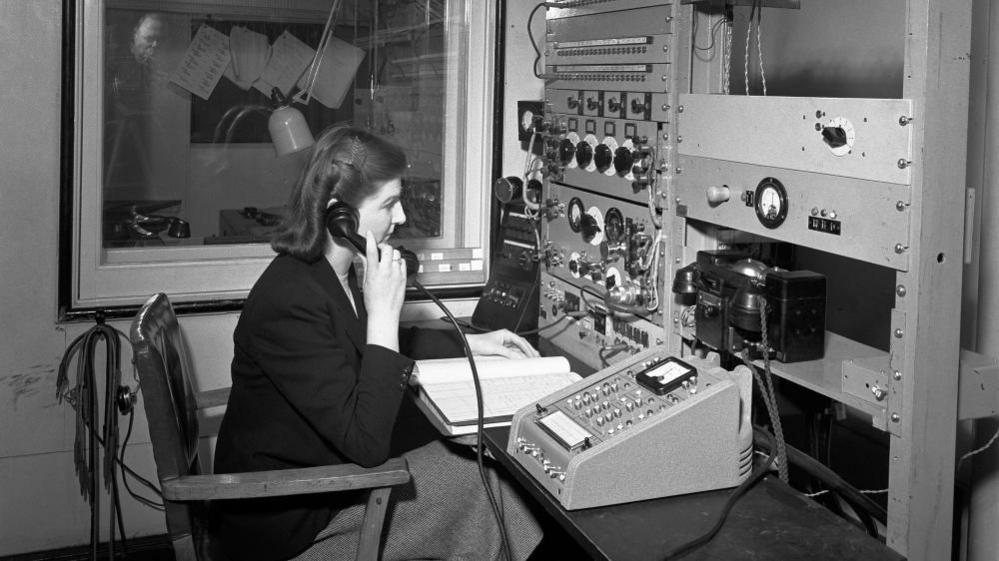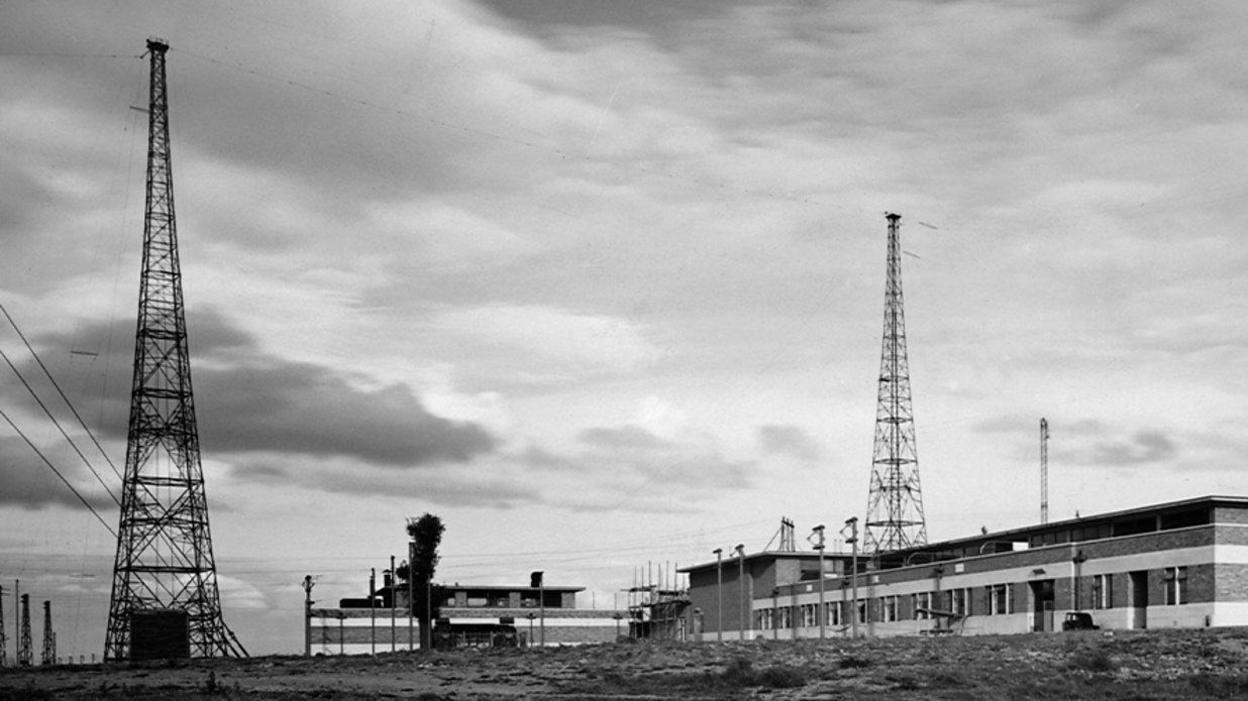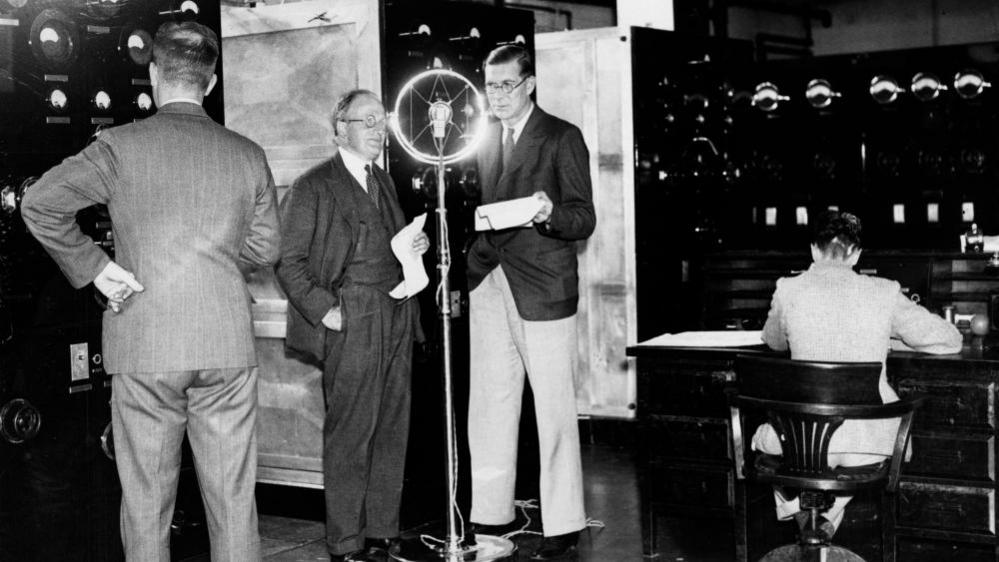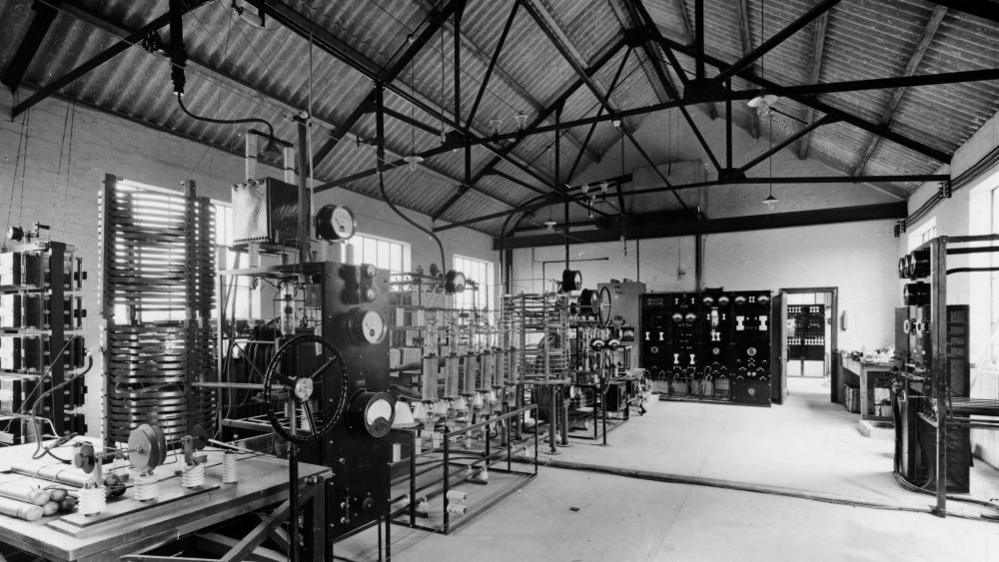BBC centenary marked at first national radio transmitter

The transmitter in Daventry, pictured here in use in 1951, was chosen because of its location in central England
- Published
The BBC's 100th anniversary has been marked in the town that enabled it to make nationwide radio broadcasts.
Opening on 27 July 1925, the Daventry Transmitter was the world's first long wave transmitting station.
Known as 5XX, it was on Borough Hill in the Northamptonshire town and its first transmission was with the a poem called "Daventry Calling...".
Sophie Good from the town's museum said: "Daventry has got a strong affiliation with the BBC."

At its peak there were more than 40 masts and towers on an antennae field extending over hundreds of acres
The BBC chose the position so the transmitter could cover the maximum land area.
It brought the total audience within listening distance to 94% of the population.
When it opened, the poem by Alfred Noyes was followed by speeches from the postmaster general, external and the mayor of Daventry, introduced by Lord Gainford, BBC Chairman.
The then Prime Minister Stanley Baldwin sent a message, published in the Radio Times, which said he saw "Daventry as another milestone on the road to the social betterment of our people".

What became the BBC World Service was broadcast from Daventry, with programmes coming from the transmitter hall, pictured here in 1936
In December 1932, the Empire Short Wave Service, which became the BBC World Service, began with broadcasts from Borough Hill.
It was the first broadcast to the Empire from the UK.
Daventry saw continuous use until 1992 and at its peak had more than 40 masts and towers.
It now only has a single mast which is part of the BBC National DAB network.

The transmitter was the first of its kind in the world
To mark the BBC 100th anniversary Daventry Museum has an exhibition called A Centenary of Sights and Sounds.
It includes items from the Borough Hill site and contributions from people in the town who used to work there.
Ms Good said the transmitter "had a significant impact on the town".
"It was the first high power long wave broadcasting station and the whole world started talking about Daventry," she said.
The exhibition runs until December to take in the 90th anniversary of the Empire Short Wave Service.
Find BBC News: East of England on Facebook, external, Instagram, external and Twitter, external. If you have a story idea for us, get in touch via eastofenglandnews@bbc.co.uk, external
- Published3 October 2022
